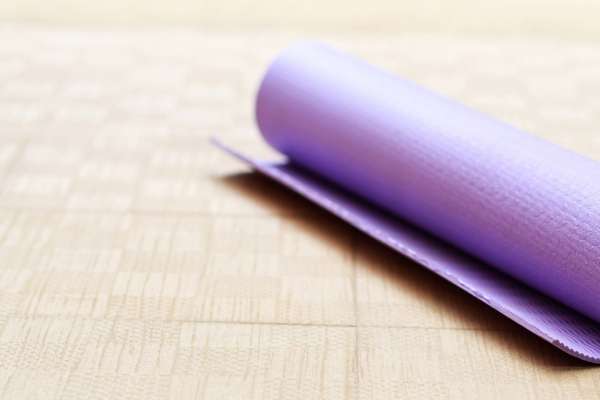Bulk Yoga Mat Buying Guide for Studios, Gyms & Wellness Brands
The global demand for yoga and fitness accessories has surged in recent years, and at the heart of every practice lies a fundamental tool—the yoga mat. For businesses like fitness studios, yoga centers, gyms, and wellness brands, purchasing yoga mats in bulk is not just a cost-effective strategy; it's an essential investment in customer experience, brand image, and long-term operational efficiency.
In this comprehensive guide, we’ll walk you through everything you need to know when buying yoga mats in bulk—from understanding your material options to ensuring your supplier meets both quality and ethical standards.
Understanding the Importance of Choosing the Right Yoga Mat in Bulk
Yoga mats are more than just a surface to practice on. They affect the comfort, safety, hygiene, and performance of the end user. When you’re purchasing them for a commercial environment or retail brand, your choice reflects directly on your business. A poorly made or slippery mat can lead to discomfort or injury, while a high-quality mat enhances the user’s trust and loyalty to your brand.
For wellness brands that offer mats as retail products, the material, design, and durability all play a vital role in shaping customer satisfaction and reviews. For gyms and studios, the durability of the mat under repeated, heavy use is even more important.
Identifying Your Business Needs and Usage Context
Before approaching suppliers, you must first define how the mats will be used. A yoga studio has different priorities than a gym or corporate wellness center. Studios may prioritize mats with excellent grip and comfort, especially for poses that require stability. Gyms may prefer mats that are thicker and more durable, especially if users will use them for high-impact floor exercises. Wellness brands may focus more on aesthetics, eco-friendliness, or customization features to build their product line.
Ask yourself these questions: Will the mats be used in heated or humid environments? Are they meant for resale or free use in your facility? Will you need branded designs or standard neutral options? These answers will guide the material, texture, thickness, and price range that will work for your business.
Exploring Yoga Mat Materials: What’s Best for Bulk Orders
The choice of yoga mat material greatly influences cost, durability, performance, and environmental impact. When purchasing in bulk, it’s important to understand the pros and cons of each option to match them with your usage scenario and audience expectations.
TPE (Thermoplastic Elastomer) is a popular modern material that is lightweight, recyclable, non-toxic, and has excellent grip. It’s often preferred by studios and brands seeking eco-conscious solutions.
PVC (Polyvinyl Chloride) is a more affordable, widely available material used in many commercial fitness mats. It offers great durability and cushioning, but it’s not biodegradable and may contain chemical additives, making it less appealing to eco-friendly brands.
NBR (Nitrile Butadiene Rubber) is thick, cushioned, and water-resistant. It’s a strong choice for gyms where mats may double for workouts or stretching, though its bulky nature makes it less ideal for compact storage or yoga use.
Natural rubber is highly durable and offers excellent traction, making it ideal for premium yoga studios or brands that want a luxury, eco-conscious product. However, it’s heavier and more expensive, which should be factored into shipping and storage.
Jute and cork mats combine natural aesthetics with sustainable appeal. They are breathable and slip-resistant, popular with eco-minded users, but can be more niche and less versatile across exercise types.
Determining the Right Thickness and Size for Commercial Use
Yoga mat thickness is an important specification that impacts user comfort and product functionality. Standard yoga mats are typically around 4mm to 6mm thick, providing the right balance of support and grounding for most yoga practices. However, gyms or clients seeking extra cushioning may benefit from mats ranging from 8mm to 12mm thick.
Thinner mats (3mm or less) offer better floor feedback, which is ideal for advanced yoga practitioners, while thicker mats are recommended for beginners or therapeutic use.
The standard mat size is around 173cm x 61cm, which suits most users. Taller or plus-size clients may prefer mats with extended length or width, such as 183cm x 66cm. When ordering in bulk, offering a mix of sizes may cater better to diverse clientele.
The Role of Texture, Surface Grip, and Sweat Resistance
In commercial or studio environments, slip-resistance is not optional—it’s essential. A textured surface helps users maintain poses safely, especially in hot yoga or high-sweat situations. The surface material, embossing, and even bottom texture (which keeps the mat stable on the floor) all contribute to this performance.
TPE and rubber mats usually provide excellent natural grip, while PVC mats often require additional surface treatment or “break-in” time to reach optimal friction. Cork and jute materials offer organic grip that increases with moisture, making them excellent for intense sessions.
If you’re purchasing for hot yoga or high-temperature studios, ensure the mats are specifically marketed as sweat-resistant or moisture-absorbent. Anti-microbial coatings or easy-clean surfaces also reduce hygiene concerns in shared-use scenarios.
Branded Yoga Mats and Private Labeling Opportunities
Custom branding transforms a basic product into a marketing tool. Studios and wellness brands can benefit from having their logo, slogan, or color scheme printed or embossed onto yoga mats. This not only strengthens brand visibility but also builds loyalty and professionalism.
Bulk yoga mat suppliers often offer OEM and ODM services, allowing you to create fully customized mats with specific materials, sizes, thicknesses, and packaging. For retail businesses, private labeling is a powerful way to sell under your own brand name without the need to manufacture from scratch.
When considering branded mats, also explore options like printed patterns, UV printing, debossing, and heat-transfer labels. Some suppliers may even offer eco-friendly inks or biodegradable packaging for a completely green solution.
Quality Control and Certification Standards
Bulk purchasing introduces more risk if quality control isn’t properly addressed. Always inquire about your supplier’s quality assurance process. Ask if they conduct drop tests, adhesion tests, compression recovery, and colorfastness testing to ensure consistency across your order.
Look for yoga mats that comply with international safety and manufacturing certifications such as SGS, REACH, or ISO standards. These not only validate material safety but also give peace of mind to health-conscious consumers.
If your market is particularly eco-sensitive, consider verifying if the mats are free from phthalates, heavy metals, latex, or other harmful substances. This is especially important when sourcing for the European Union, North America, or premium wellness markets.
Storage, Shipping, and Packaging Considerations
Yoga mats are bulky items, and when ordered in large quantities, efficient storage and shipping can make a significant cost difference. Discuss packaging formats with your supplier—will the mats be rolled with or without straps, wrapped in plastic sleeves, or packed in branded cartons?
Ensure your warehouse has enough space for proper storage, especially if the mats are thick or oversized. Some businesses opt for compressed packing methods to reduce volume, but be sure the mats can recover their shape easily upon unrolling.
For export orders, ask if your supplier can support FOB (Free on Board), CIF (Cost, Insurance and Freight), or DDP (Delivered Duty Paid) terms, depending on your logistics needs. Bulk shipments by sea are typically more cost-effective for high-volume orders.
Evaluating Suppliers and Manufacturing Partners
Your supplier plays a key role in your brand’s success, especially when ordering in bulk. A reliable manufacturer should provide consistent communication, clear pricing, flexible MOQ (minimum order quantities), and transparency on lead times.
Before finalizing an order, ask for product samples to evaluate quality firsthand. Reputable suppliers will gladly provide test units and even arrange virtual or on-site factory tours. Read client reviews, request business references, and check their export history if you're importing internationally.
Also, inquire about their customization capabilities, sustainability policies, and post-sale support. A good manufacturing partner can scale with your business as your brand grows.
Pricing Strategies and Budgeting for Bulk Yoga Mat Orders
Bulk purchasing offers significant cost advantages, but it’s essential to balance price with value. Lower-cost mats may not hold up under frequent use or may carry a higher replacement rate, negating your initial savings.
Ask your supplier to provide a detailed quote that includes unit price, packaging costs, branding charges, and shipping estimates. If you’re sourcing internationally, factor in import duties, taxes, and customs fees.
Seasonal demand, currency fluctuations, and shipping container availability can also affect pricing, so build some flexibility into your budget. For long-term partnerships, try negotiating volume discounts, scheduled deliveries, or payment terms that suit your cash flow.
Making the Final Purchase Decision
Once you’ve gathered all necessary information—product samples, pricing, supplier capabilities, and logistics options—it’s time to finalize your order. Carefully review your supplier agreement or purchase contract to ensure clarity on lead times, payment structure, defect policies, and customization details.
It’s often worth starting with a trial order to test your supplier’s reliability and the product’s real-world performance. After successful validation, you can confidently scale up your volume and even expand your range of mat styles, accessories, or fitness gear offerings.
Conclusion
Purchasing yoga mats in bulk is a strategic decision that has long-term implications for your brand reputation, customer satisfaction, and business success. Whether you're running a high-end yoga studio, supplying a national fitness chain, or launching your own private label wellness brand, understanding your options is crucial.
From choosing the right materials to partnering with the right supplier, this guide has walked you through the essentials to make a smart, confident decision. With quality mats that reflect your brand's values and durability that matches your customers’ expectations, you’ll be investing in products that elevate both performance and perception.



.png)

